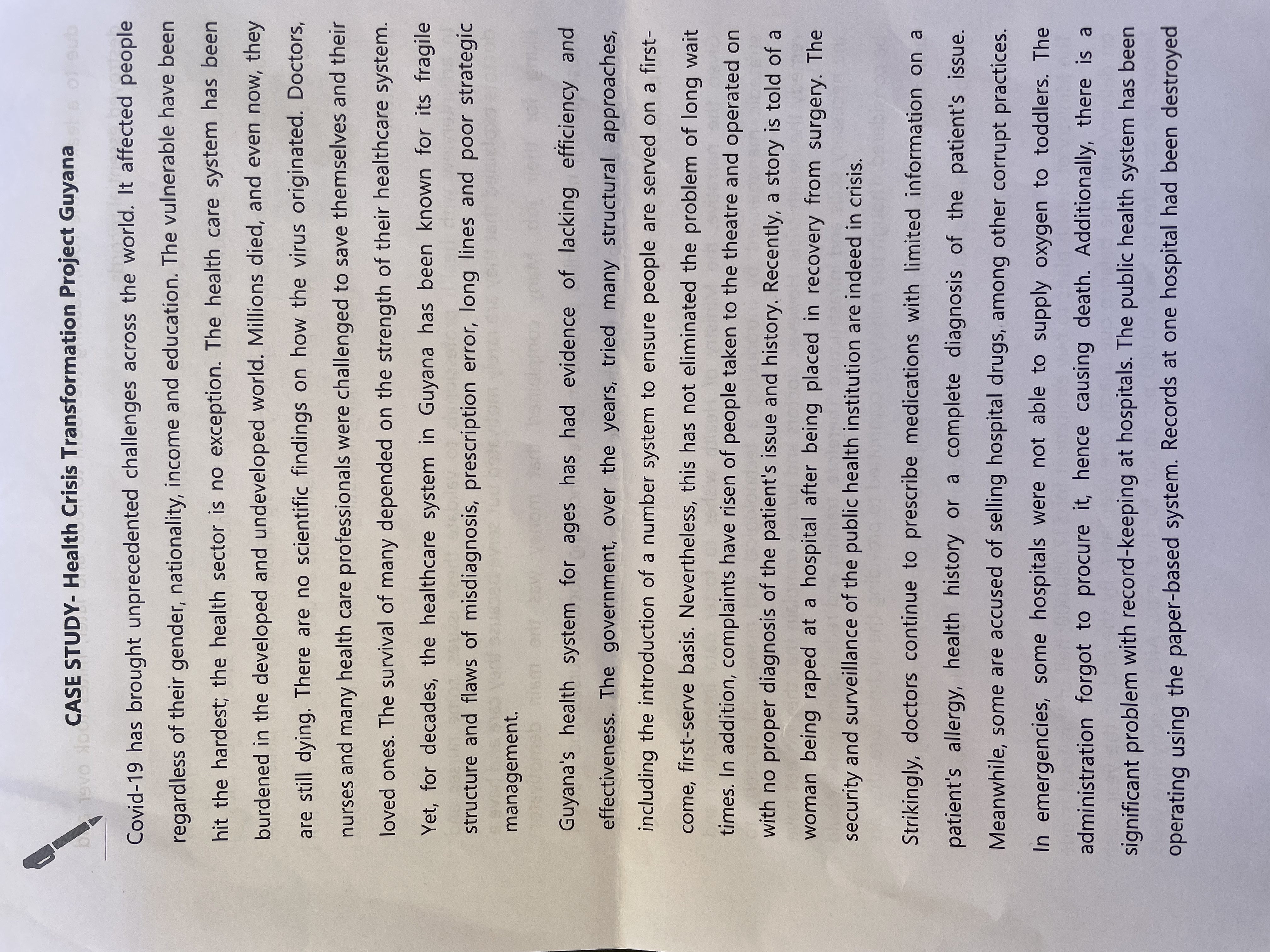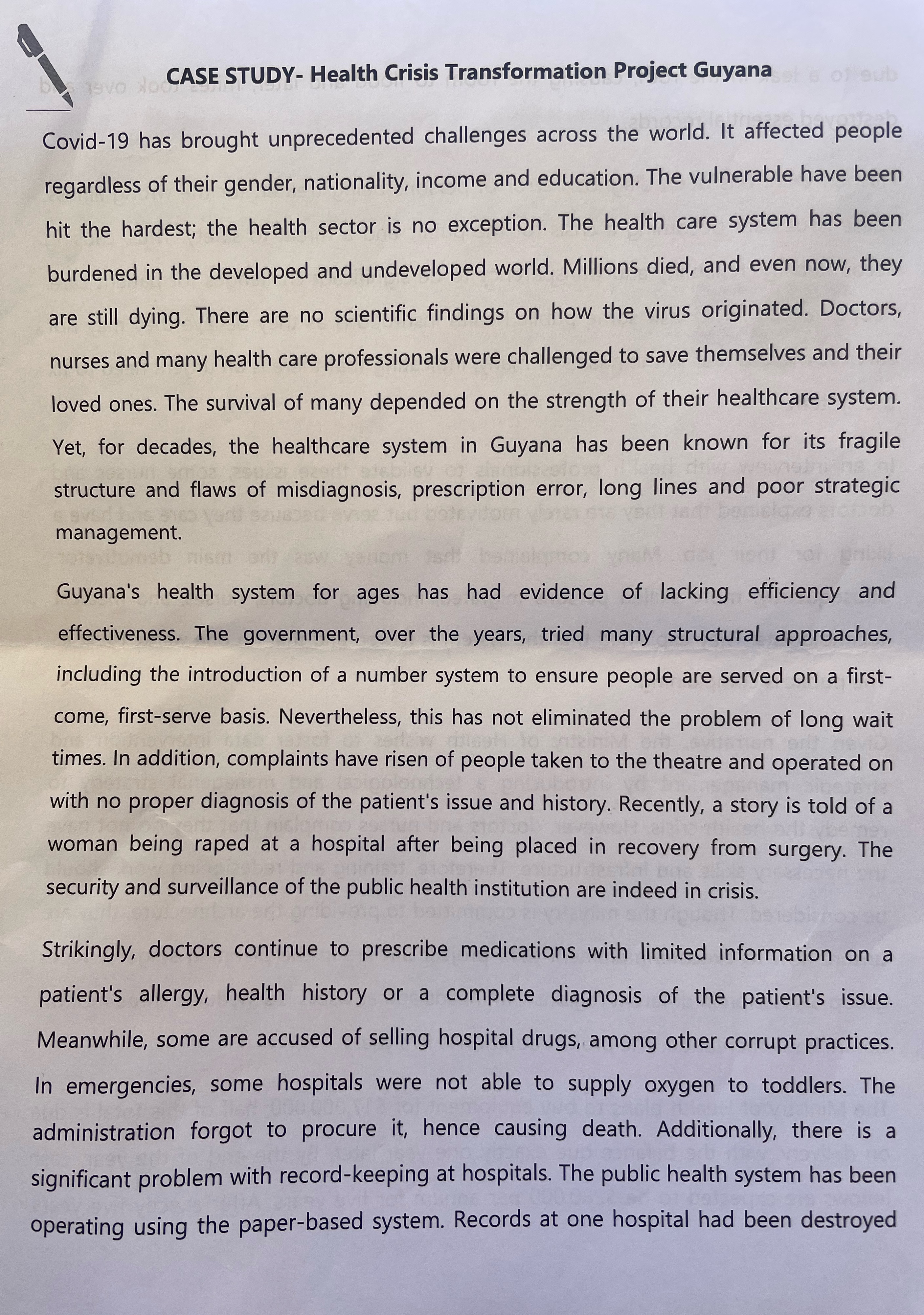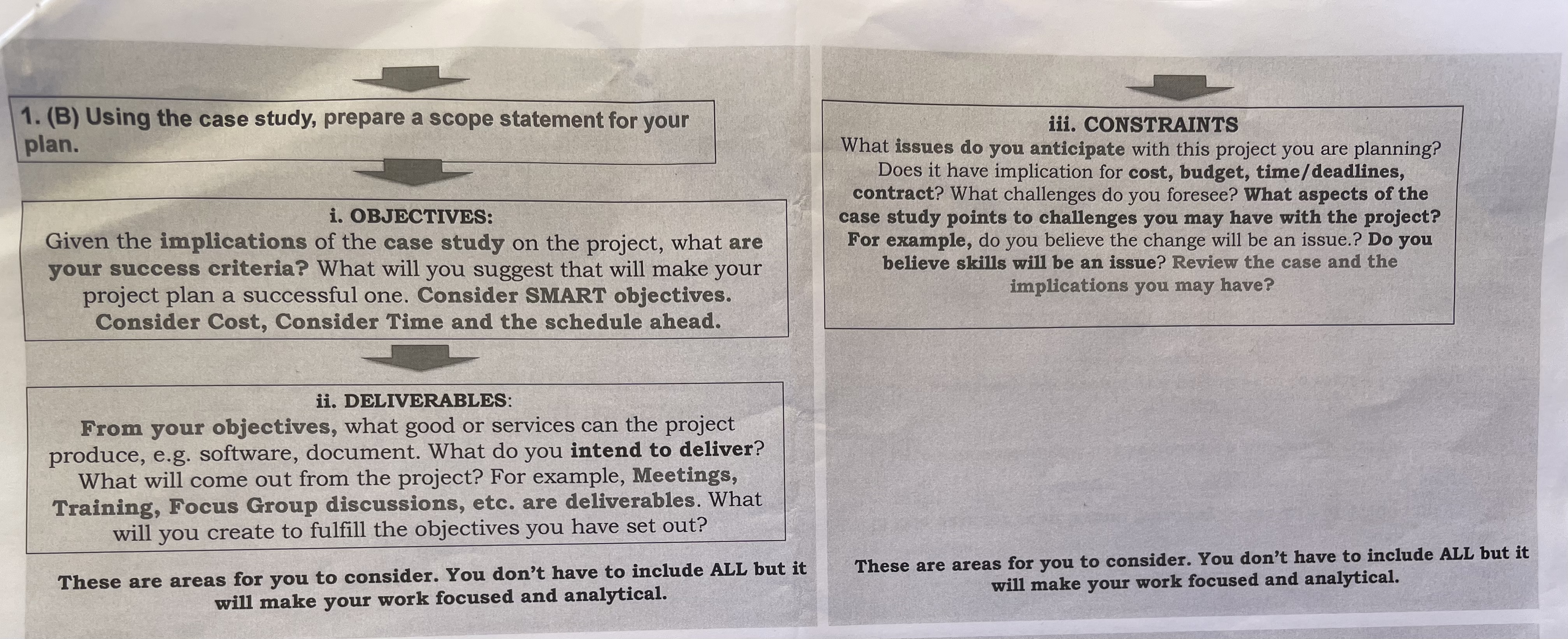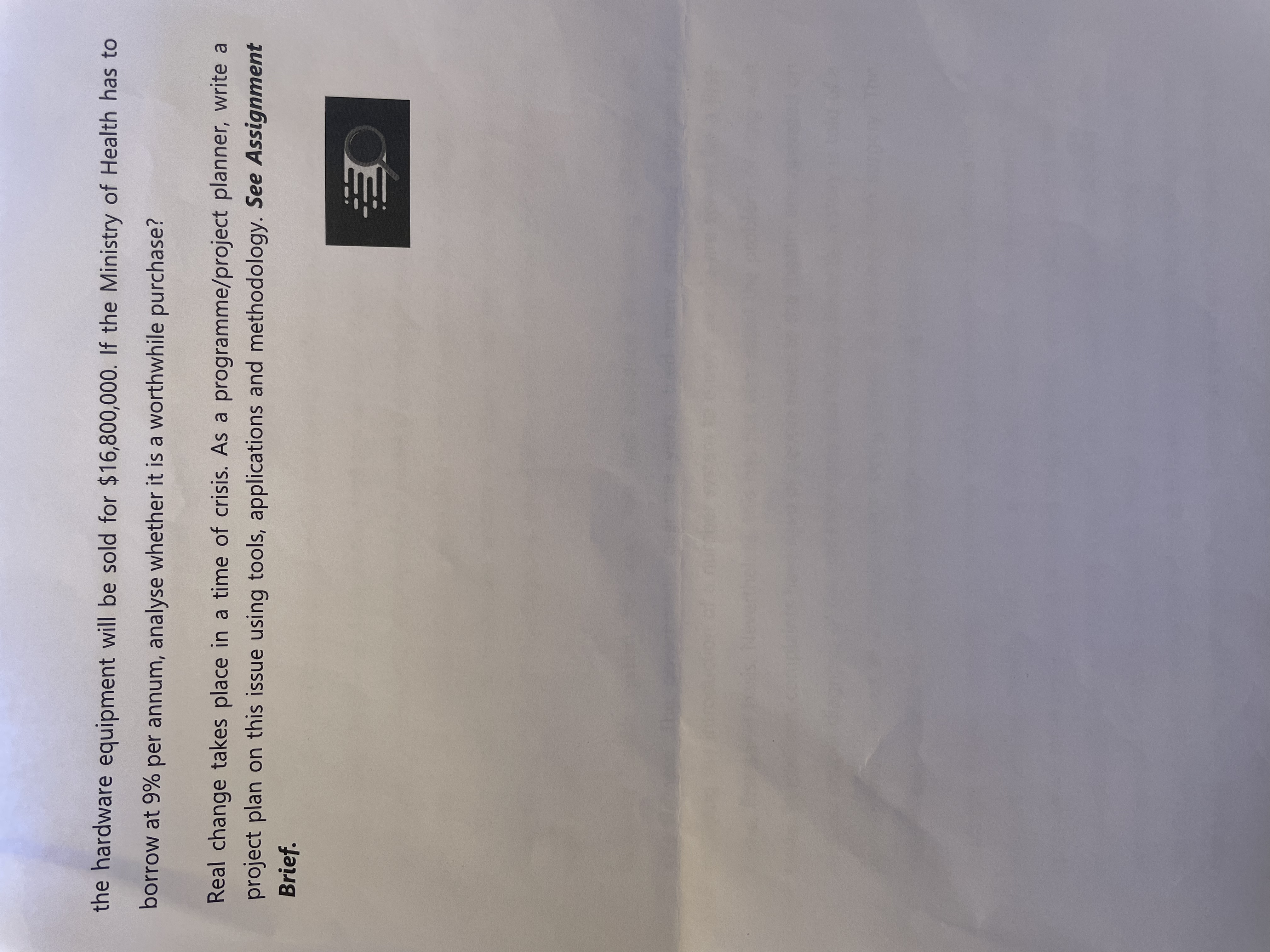Use the case study, prepare a scope statement for the plan
19vo y CASE STUDY- Health Crisis Transformation Project Guyana s of sub Covid-19 has brought unprecedented challenges across the world. It affected people regardless of their gender, nationality, income and education. The vulnerable have been hit the hardest; the health sector is no exception. The health care system has been burdened in the developed and undeveloped world. Millions died, and even now, they are still dying. There are no scientific findings on how the virus originated. Doctors, nurses and many health care professionals were challenged to save themselves and their loved ones. The survival of many depended on the strength of their healthcare system. Yet, for decades, the healthcare system in Guyana has been known for its fragile structure and flaws of misdiagnosis, prescription error, long lines and poor strategic management. Guyana's health system for ages has had evidence of lacking efficiency and effectiveness. The government, over the years, tried many structural approaches, including the introduction of a number system to ensure people are served on a first- come, first-serve basis. Nevertheless, this has not eliminated the problem of long wait times. In addition, complaints have risen of people taken to the theatre and operated on with no proper diagnosis of the patient's issue and history. Recently, a story is told of a woman being raped at a hospital after being placed in recovery from surgery. The security and surveillance of the public health institution are indeed in crisis. Strikingly, doctors continue to prescribe medications with limited information on a patient's allergy, health history or a complete diagnosis of the patient's issue. Meanwhile, some are accused of selling hospital drugs, among other corrupt practices. In emergencies, some hospitals were not able to supply oxygen to toddlers. The administration forgot to procure it, hence causing death. Additionally, there is a significant problem with record-keeping at hospitals. The public health system has been operating using the paper-based system. Records at one hospital had been destroyed19vo yCASE STUDY- Health Crisis Transformation Project Guyana 6 0) sub Covid-19 has brought unprecedented challenges across the world. It affected people regardless of their gender, nationality, income and education. The vulnerable have been hit the hardest; the health sector is no exception. The health care system has been burdened in the developed and undeveloped world. Millions died, and even now, they are still dying. There are no scientific findings on how the virus originated. Doctors, nurses and many health care professionals were challenged to save themselves and their loved ones. The survival of many depended on the strength of their healthcare system. Yet, for decades, the healthcare system in Guyana has been known for its fragile structure and flaws of misdiagnosis, prescription error, long lines and poor strategic management. Guyana's health system for ages has had evidence of lacking efficiency and effectiveness. The government, over the years, tried many structural approaches, including the introduction of a number system to ensure people are served on a first- come, first-serve basis. Nevertheless, this has not eliminated the problem of long wait times. In addition, complaints have risen of people taken to the theatre and operated on with no proper diagnosis of the patient's issue and history. Recently, a story is told of a woman being raped at a hospital after being placed in recovery from surgery. The security and surveillance of the public health institution are indeed in crisis. Strikingly, doctors continue to prescribe medications with limited information on a patient's allergy, health history or a complete diagnosis of the patient's issue. Meanwhile, some are accused of selling hospital drugs, among other corrupt practices. In emergencies, some hospitals were not able to supply oxygen to toddlers. The administration forgot to procure it, hence causing death. Additionally, there is a significant problem with record-keeping at hospitals. The public health system has been operating using the paper-based system. Records at one hospital had been destroyed1. (B) Using the case study, prepare a scope statement for your iii. CONSTRAINTS plan. What issues do you anticipate with this project you are planning? Does it have implication for cost, budget, time/deadlines, contract? What challenges do you foresee? What aspects of the i. OBJECTIVES: case study points to challenges you may have with the project? Given the implications of the case study on the project, what are For example, do you believe the change will be an issue.? Do you your success criteria? What will you suggest that will make your believe skills will be an issue? Review the case and the project plan a successful one. Consider SMART objectives. implications you may have? Consider Cost, Consider Time and the schedule ahead. ii. DELIVERABLES: From your objectives, what good or services can the project produce, e.g. software, document. What do you intend to deliver? What will come out from the project? For example, Meetings, Training, Focus Group discussions, etc. are deliverables. What will you create to fulfill the objectives you have set out? These are areas for you to consider. You don't have to include ALL but it These are areas for you to consider. You don't have to include ALL but it will make your work focused and analytical. will make your work focused and analytical.the hardware equipment will be sold for $16,800,000. If the Ministry of Health has to borrow at 9% per annum, analyse whether it is a worthwhile purchase? Real change takes place in a time of crisis. As a programme/project planner, write a project plan on this issue using tools, applications and methodology. See Assignment Brief










